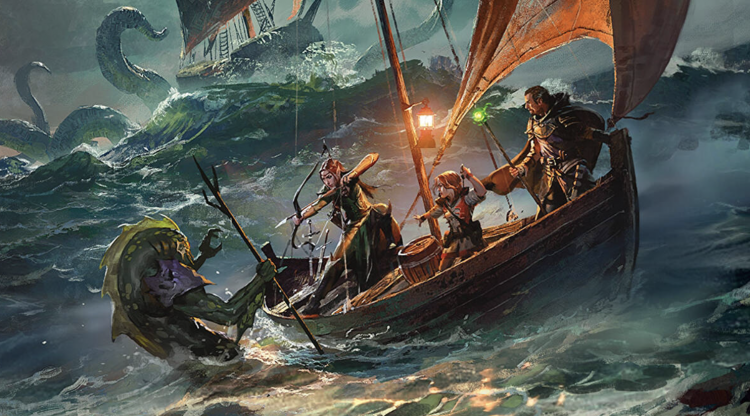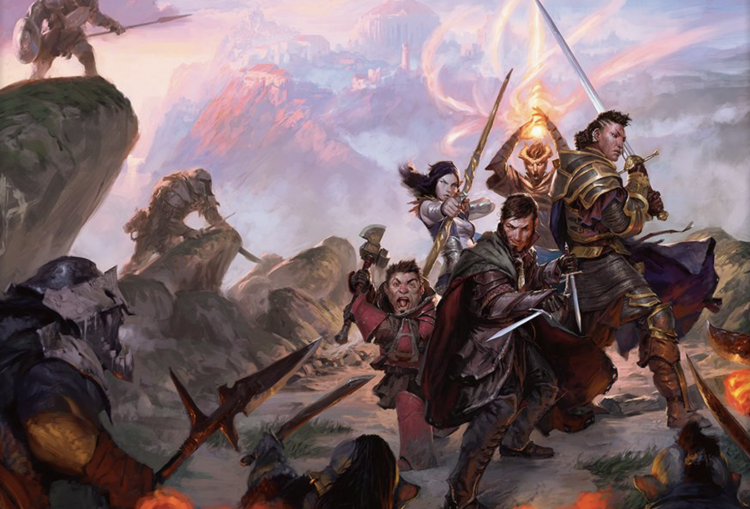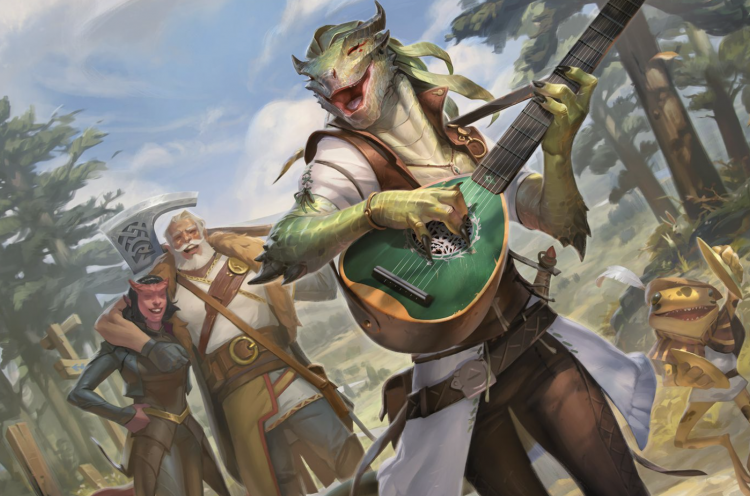
credit: Dungeons and Dragons
However one feels about Dungeons and Dragons, the game is a great deal of fun, and it has inspired many stories throughout the years, not to mention that it’s converted a lot of people into geeks and nerds that are proud to speak such terms since the truth is, the chance to use one’s imagination is enticing. But when playing the game, paying attention to the rules and learning how to utilize tactics and strategy is just as important as getting to know one’s character since a balanced party makes the game flow a lot easier, though a dysfunctional party can be just as fun and provide a great number of challenges that make life interesting. But if one really wants their group to last for more than one encounter, there are a few combinations of character classes that might be wise to consider.
While going over the many sentient races that exist in this realm would require a novel to explain, glossing over the classes and why they’re important is a lot easier since the basic classes are what most parties will start with, given that at level one, everyone tends to suck just a bit and legendary acclaim has to be earned. But if one picks a class that feels comfortable with their way of thinking, it’s easy to assume that they’ll have a good time with it.

credit: Dungeons and Dragons
What type of classes are picked depends on the individuals, but some are definitely needed more than others.
One thing that is always wise to select is a healer. Since a cleric can wear light to heavy armor most often, they can use various weaponry, and their spells can range from healing to the type of damage that can help in a fight against undead or unholy creatures. They’re essentially the healing tank of the party, while the fighter is the offensive tank that can walk into battle and dish out high levels of damage.
Added to this, a mage can provide spells that can cover a wide range or take out multiple opponents, while a thief can, when they connect, provide stealth and insane amounts of damage when it comes to their sneak attack. With the party members working in concert against an enemy, the only thing that can disrupt the harmony of battle are low dice rolls since, like it or not, this is the only thing that can consistently ruin a well-orchestrated attack. Otherwise, dealing heavy, up-close damage and wide-ranging damage while keeping the healer safe and at the ready is a great way to run a party.
Selecting a character just to try it out isn’t a bad thing, especially since a newbie might need to discover if a certain class is right for their mindset.
It’s a guarantee that not every individual is going to grow into their character and continue to enjoy them. Depending on the terrain, the type of adventure, and the personalities that are involved, a party that works in concert might be best served by keeping a few of their members as the core of the group while others remain at a distance to provide needed cover.
A good example would be a wilderness-based campaign in which a ranger, a druid, or even a monk would excel. While the ranger and monk excel at dealing damage both from afar and up close, respectively, the druid is a wise choice to play when it comes to being in tune with nature.
Unfortunately, the monk tends to be a very easy character to play since they have a great number of special abilities that make them a bit OP at times, while the ranger and the druid definitely take over while in the wilderness, as this is where their skills are at their best, and where they excel in many different ways. This is the type of campaign where a barbarian, who is also accustomed to the wilds, would also be a valued part of the party.

credit: Dungeons and Dragons
A balanced party will feature characters that possess a wide, overlapping range of skills.
Here are just a few examples of what group might be best for each type of quest:
City-based:
Bard-This smooth-tongued character is usually great for talking to other individuals, such as in a royal court or to city officials, which can make life easier for the players. Their magic can also heal or do damage depending on what they intend to do.
Cleric– The healer is one of the most constant characters in the entire game and will usually be seen in any campaign since chances are that players will always need healing. Plus, cities tend to have temples, which is a good idea for this character.
Fighter-Fighters are versatile and can go pretty much anywhere, so long as it’s understood that the more aggressive among them is bound to cause trouble if they act up in a city setting.
Paladin-Holy warriors can wear heavy armor and use most martial weapons. These characters tend to be a valuable addition to a party but can grate on certain characters that aren’t quite as noble as these warriors often choose to be.
Rogue-In the city, there’s almost no other character that’s as dangerous as a rogue, as their nimble fingers can lift purses, pouches, and a large number of items provided that they’re skilled enough.
Mage-Knowledge is found in cities, and a mage would find a cityscape valuable when it comes to a variety of shops, as they tend to require spellbooks, scrolls, spell components, and various other items to adventure with.
Wilderness-based:
Druid-There aren’t a lot of other characters that could claim to be attuned to nature the way a druid is, as their ability to transform themselves into other creatures and commune with nature is an impressive quality. They’re not typically great fighters until higher levels, but they do have a few tricks up their sleeves.
Cleric-Again, a healer, is going to be needed pretty much anywhere.
Barbarian-Usually born and bred in the wilds, barbarians are home on the frozen tundra, in the forests, and even on the plains more often than not. Plus, they’re not exactly that civilized and enjoy being out of the cities unless they’re in a tavern or have another purpose of wandering into civilization.
Fighter-Fighters can go pretty much anywhere. They’re the basic characters of D&D.
Ranger-Much like the druid, a ranger is more at home when they’re in the wild, but while they can’t change shape, they’re much more skilled at fighting and tracking and are often considered to be the defenders of the wilds.
Warlock-While this type of character can fit in pretty much anywhere, it’s easy to see them in the wilds since some of them make pacts with fey creatures or other ancient beings that are a little too dangerous for the city.
Dungeon-based:
Bard-A bard can act like a rogue in a pinch since their skill set is such that they know how to perform certain tricks and might even have a spell or two that can help them to emulate a rogue if they need to.
Cleric-This is one of the areas where a cleric is really needed, and where the cleric needs to wear heavier armor to make sure that they’re upright and can heal their party.
Fighter-Picking the right weapons for a dungeon campaign is important, but otherwise, the fighter is right at home in just about any terrain.
Rogue-If there are traps and devices to be disabled, the rogue is a great member of the party to have along. Of course, if there’s a treasure, the rest of the party might need to keep a close eye on this character.
Warlock-Much like mages and sorcerers, a warlock is constantly on the lookout for magic items that can enhance and add to their power. A warlock in a dungeon campaign is a great support character since they can create area effects and attack more than one person at a time with their spells.
Several classes can complement each other if they’re played wisely.
If a group discovers how to work together with the characters they’ve selected, then they’ll have no problem enduring a campaign. In fact, some of the most dysfunctional groups have had the greatest success when it comes to D&D.
 Follow Us
Follow Us





